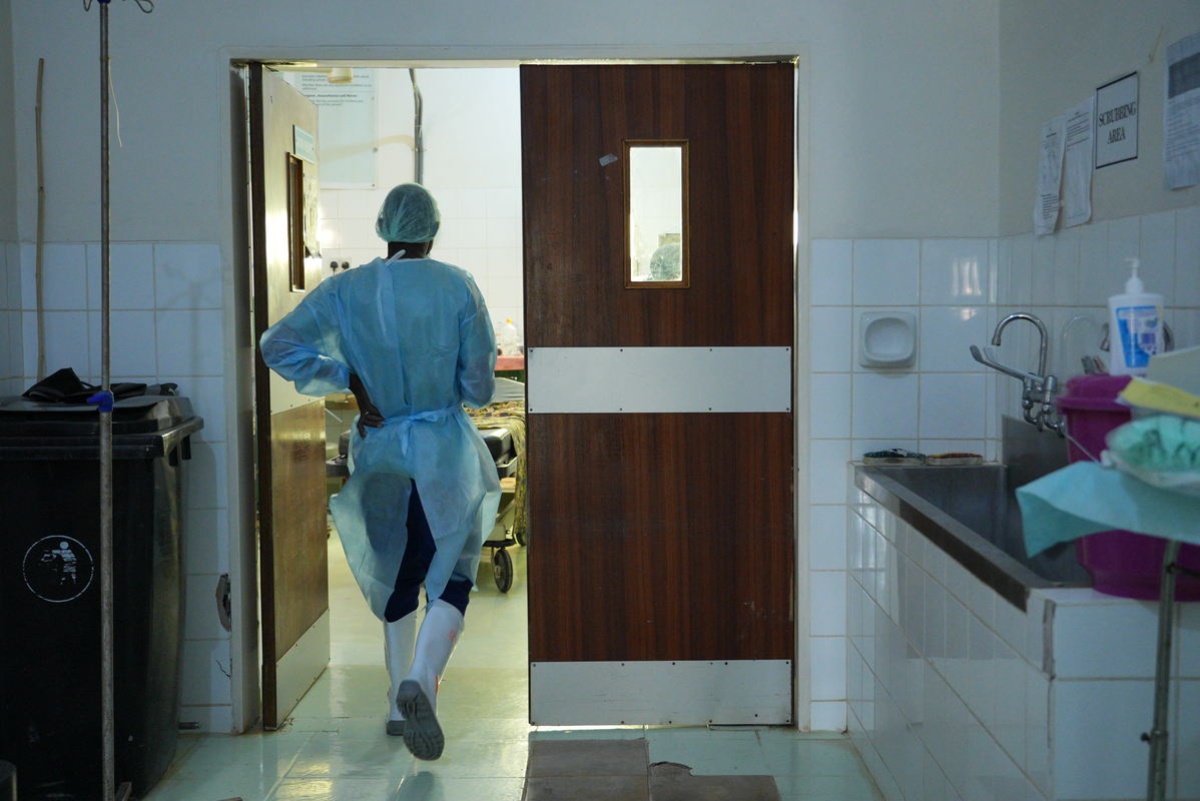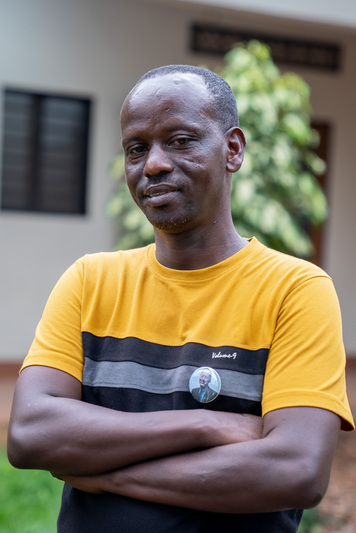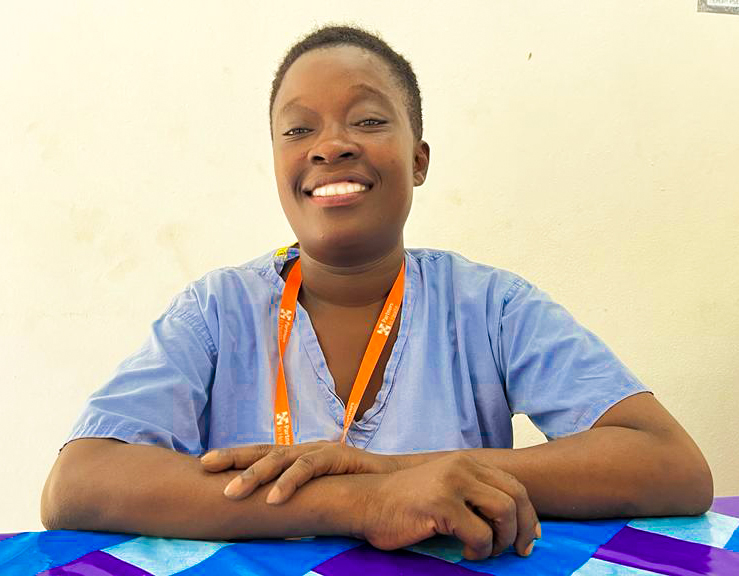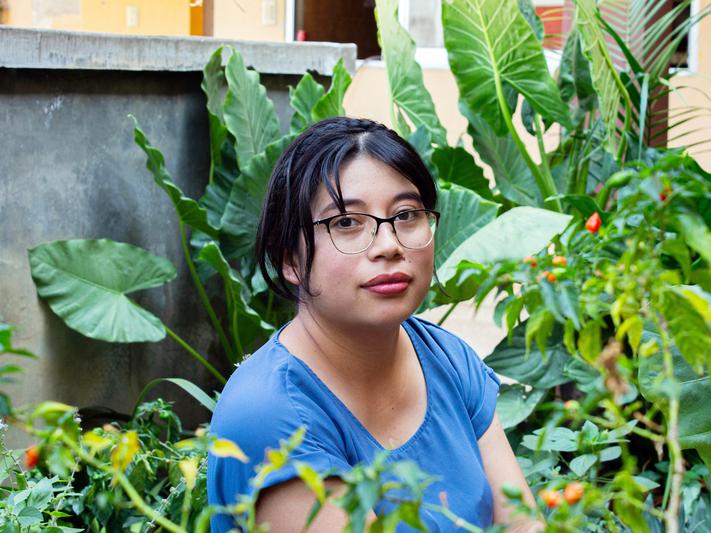Once They Were Patients. Now They Are Health Workers.
PIH care transforms lives, careers
Posted on Mar 15, 2023

In the rural community of Rwinkwavu, in eastern Rwanda, Jean Claude “Gatoto” Rutayisire spends his days managing care for patients living with non-communicable diseases—making sure they have a community health worker assigned to their case and access to free medical care and resources offered by Partners In Health. Gatoto can relate to them in ways few others on staff can: he was once a patient.
Gatoto is one of several health workers with PIH who once were patients themselves, enabling them to relate to patients on a deep level and showing how access to health care can transform lives.
For more than 30 years, PIH has provided world-class medical care, strengthened health systems, and advocated for global health equity in impoverished communities worldwide, guided by the belief that health care is a human right. PIH currently works in 11 countries, where we partner with governments to make free, accessible health care a reality.
Many PIH patients have gone on to become health workers themselves, including doctors, nurses, midwives, therapists, and community health workers. Their stories are a testament to the transformational impact of health care that is free and accessible.
Below are three of their stories:
Jean Claude “Gatoto” Rutayisire

Gatoto, 45, remembers a time when no HIV treatment was available in Rwinkwavu, and people were dying at home, alone. It was a terrifying reality. Gatoto, who lives with HIV, began to wonder how many people in his community were also suffering in silence. In the early 2000s, he started a support group for people living with HIV. The group met regularly to offer a supportive space, accompany patients to the hospital, and bury those who died.
When PIH began its work in Rwanda in 2005 and free HIV treatment became available, Gatoto and the support group were instrumental in helping PIH connect with the community and build its HIV/AIDS program—an experience that since inspired him to become a health worker.
Now, Gatoto is a community health worker supervisor, mentoring a group of over 1,000 community health workers in eastern Rwanda and ensuring that patients have access to the care and support that he once had to survive without.
“My experience as a patient helps me connect on a personal level…I understand them in a way someone who didn’t go through the same experience wouldn’t,” he says. “Every patient deserves to be heard.”
Hawa Koroma

As a facility-based peer counselor with PIH Sierra Leone, Hawa Koroma meets with patients and offers care, support, and resources as they navigate their diagnoses—and, for many, their darkest moments.
It was support that, years ago, she needed herself.
Koroma had been sick and living on the streets of Freetown when Partners In Health workers found her and connected her with HIV and tuberculosis screenings, free of charge. She tested positive for both—a diagnosis that put her on the path to medication, care, and recovery and instilled in her the desire to support others.
She first signed up to volunteer with PIH, then joined as staff. Now, Koroma, 39, is a peer counselor at Wellbody Clinic, drawing on her own experiences to support patients and offering reassurance that healing—and hope—is possible.
“PIH has changed my life and my story,” she says.
Rebeca Velasco

Day to day, Rebeca Velasco felt healthy. But when she went in for a check-up at her local clinic in Plan de Libertad, a rural community in Chiapas, Mexico, she received unexpected news: She had a heart murmur, along with other complications. After a series of tests, doctors concluded she would need open heart surgery, or her heart could stop at any minute.
The news terrified Velasco. But fortunately, she was not alone. PIH, known locally as Compañeros En Salud, was there to support her, from testing to surgery to recovery. All expenses were paid through its Right to Health Care program—essential for Velasco, whose family is low-income.
The experience opened Velasco’s eyes and inspired her to work in health care. She is now a community health worker supervisor, using her experience as a patient to guide her work. There’s another inspiration driving her, too. Years earlier, her grandfather passed away due to complications from diabetes, a condition he had lived with for decades.
“When he died, it was very difficult for me, because I felt we could have done more for him. That maybe with the right care, we could have saved him,” she says. “It inspired me to be able to accompany patients in their illnesses, to teach them to take care of themselves, to remind them about their medications…to be a bridge for them, so they are not alone.”

